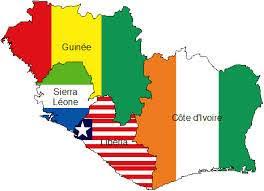Nigeria’s reliance on oil revenue puts it at a crossroads. Despite being one of Africa’s largest economies and the most populous nation on the continent, its historical dependency on oil exports presents an ongoing economic and developmental hurdle. Over the years, Nigeria has witnessed a decline in multiple domains, transitioning from its status as Africa’s largest economy to relinquishing its position as the leading tech market on the continent. Nigeria must undertake a strategic shift towards cultivating a diversified and vibrant economy to navigate a sustainable path forward. This transition will amplify its soft power – the capacity to exert influence through attraction and persuasion rather than force – on the international stage.
Revitalising Nigeria’s manufacturing sector is paramount to this vision. Achieving this requires substantial investment in robust infrastructure, including efficient transportation networks and reliable power supplies. Such infrastructure demonstrates Nigeria’s capacity for large-scale projects and enhances its international appeal. A thriving manufacturing sector can position Nigeria as an African leader by fostering technological innovation. At the same time, high-quality products manufactured locally can bolster Nigeria’s global brand image and cultural influence, acting as cultural ambassadors. Moreover, a robust manufacturing sector promotes regional integration and diplomatic efforts, strengthening economic ties and political influence across the continent. Collaborating with international allies on manufacturing initiatives will further enhance Nigeria’s diplomatic relations and global soft power.
Central to manufacturing success is a skilled workforce, underscoring the need for investment in education and training programs. Prioritising human capital development empowers citizens, mitigates unemployment, and fosters social cohesion. A well-educated and skilled workforce drives economic productivity. It showcases Nigeria’s commitment to human development and capacity building, enhancing its soft power. Furthermore, reducing import dependency through domestic production improves the trade balance. It creates jobs, amplifying Nigeria’s soft power through economic stability. Implementing special economic zones, tax incentives, and streamlining bureaucracy can attract foreign investment and boost local industries. Embracing the “Made in Nigeria” label can foster national pride and economic advancement.
Drawing inspiration from success stories like South Korea, Nigeria can leverage its entertainment industry to tap into its soft power potential. Nollywood, Nigeria’s film industry, already wields significant influence across Africa and beyond. With strategic marketing and government support, it could become a global phenomenon, showcasing Nigerian storytelling and culture. Collaboration with international distributors and targeted marketing can amplify Nigeria’s cultural soft power across borders. Similarly, Nigerian music, fashion, and cuisine have gained international acclaim, further enhancing Nigeria’s image and shaping positive perceptions. Government-supported initiatives can elevate the vibrant fashion scene and stimulate economic growth, job creation, and tourism.
Investing in cultural diplomacy through exchanges, artist residencies, and collaborations between Nigerian and international creators can significantly bolster Nigeria’s soft power. Strengthening internal unity by promoting diverse narratives that reflect Nigeria’s values contributes to societal cohesion, fostering a collective sense of identity and pride among citizens. Additionally, embracing the digital landscape can enhance Nigeria’s soft power by utilising social media platforms to showcase Nigerian narratives and counter negative perceptions. Establishing top-tier universities and encouraging innovation hubs can once again position Nigeria as a leader in the continental digital economy, a position it recently lost.
Nigeria’s quest to harness soft power, rooted in attraction and influence, faces formidable barriers amidst persistent insecurity. Despite effectively pursuing its diplomatic objectives by supporting democracy in countries like Sierra Leone, São Tomé and Príncipe, and Togo, as well as engaging in peace efforts in Liberia and Sierra Leone, where it has contributed a significant portion of troops and funding, these achievements are hindered by challenges such as political corruption, deficiencies in democratic governance, a tarnished national reputation, and the ongoing threat of terrorism from groups like Boko Haram. The country’s struggle with violence and instability presents an image of vulnerability and disorder, dissuading potential investors, tourists, and partners from engaging fully. This pervasive insecurity tarnishes Nigeria’s global reputation. It undermines its capacity to inspire and captivate others, impeding its aspirations to assume a prominent role on the international platform. Without addressing the underlying insecurity issues, Nigeria’s ambitions to wield soft power as a tool for global leadership remain unattainable, constraining its ability to shape narratives, forge alliances, and drive positive change on the world stage.
Ultimately, Nigeria’s potential for global prominence hinges on economic diversification, human capital investment, and cultural heritage appreciation. Visionary leadership and innovative use of soft power are essential to successfully navigating these challenges. A manufacturing resurgence coupled with leveraging the entertainment industry offers a pathway to unlock Nigeria’s soft power potential, bolstering its international influence and standing in the 21st century.



